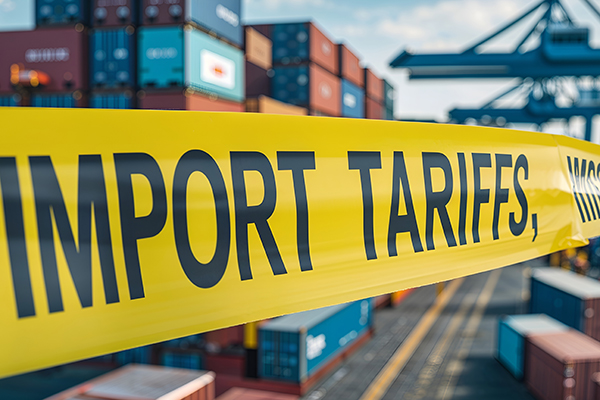
As global trade winds shift again, we’re seeing a new layer of complexity unfold as tariffs further impact imports from Malaysia and Indonesia. These changes are already reshaping decisions for manufacturers, especially those considering relocating operations from China to Southeast Asia.
At Acme Paper & Supply, our Supply Chain team communicates daily with manufacturing partners both domestically and abroad. Many manufacturers are reassessing their strategies as rising shipping costs and new tariffs may offset the intended savings of leaving China. Beyond the financial burden, there's also operational strain—moving production means relocating equipment, training a new labor force, and incurring downtime, often leading to stock outages.
Zooming out, 2025 has delivered the supply chain another challenging landscape. U.S. import duties have surged, with general rates climbing to 10–15%, and some Chinese-origin goods now facing rates as high as 145%. This shock has led to a sharp drop in Chinese imports, inventory burn rates as low as six weeks, and mounting strain across industries—from automotive and tech to consumer goods. Many factories took a proactive stance, moving production to other countries in Southeast Asia in anticipation of trade shifts, while others paused operations awaiting clearer direction—guidance that came with the U.S. tariff update on May 12th, with further updates on July 10th. The lag in production shifts is now being felt through bottlenecks, particularly for low-margin, high-volume categories like toys, medical supplies, and products we provide such as disposable cutlery, compostable tableware, smallwares, restaurant equipment, and janitorial supplies.
Our supply chain team began preparing for this shift as early as November 2024, anticipating current disruptions driven by sharply increased tariff rates. While transitions to new factories for some partners have helped Acme mitigate future exposure, temporary outages—supported by substitute items—will remain in effect through mid-December as we work to maintain quality and continuity for our clients.
In the case of Malaysia and Indonesia, new reciprocal tariff agreements with the U.S. are adding further complexity. For example, recent updates suggest compostable food packaging may now face tariffs exceeding 20%, while vinyl gloves and trash bags could see rates from 19–32%—narrowing any cost advantage over Chinese goods. As a result, many factories that once considered shifting production to Southeast Asia are now staying in China to avoid added costs and operational risk.
Due to these variables, we are also seeing further streamlining of product offerings from factories around the globe.
At Acme, we believe in staying proactive, informed, and solution oriented. Our goal is to give our clients a competitive edge, even in the face of volatility. We’ll continue to monitor these changes and share timely insights as the trade environment evolves.
If you have questions or would like to discuss how this may affect your business email us directly at info@acmepaper.com.




